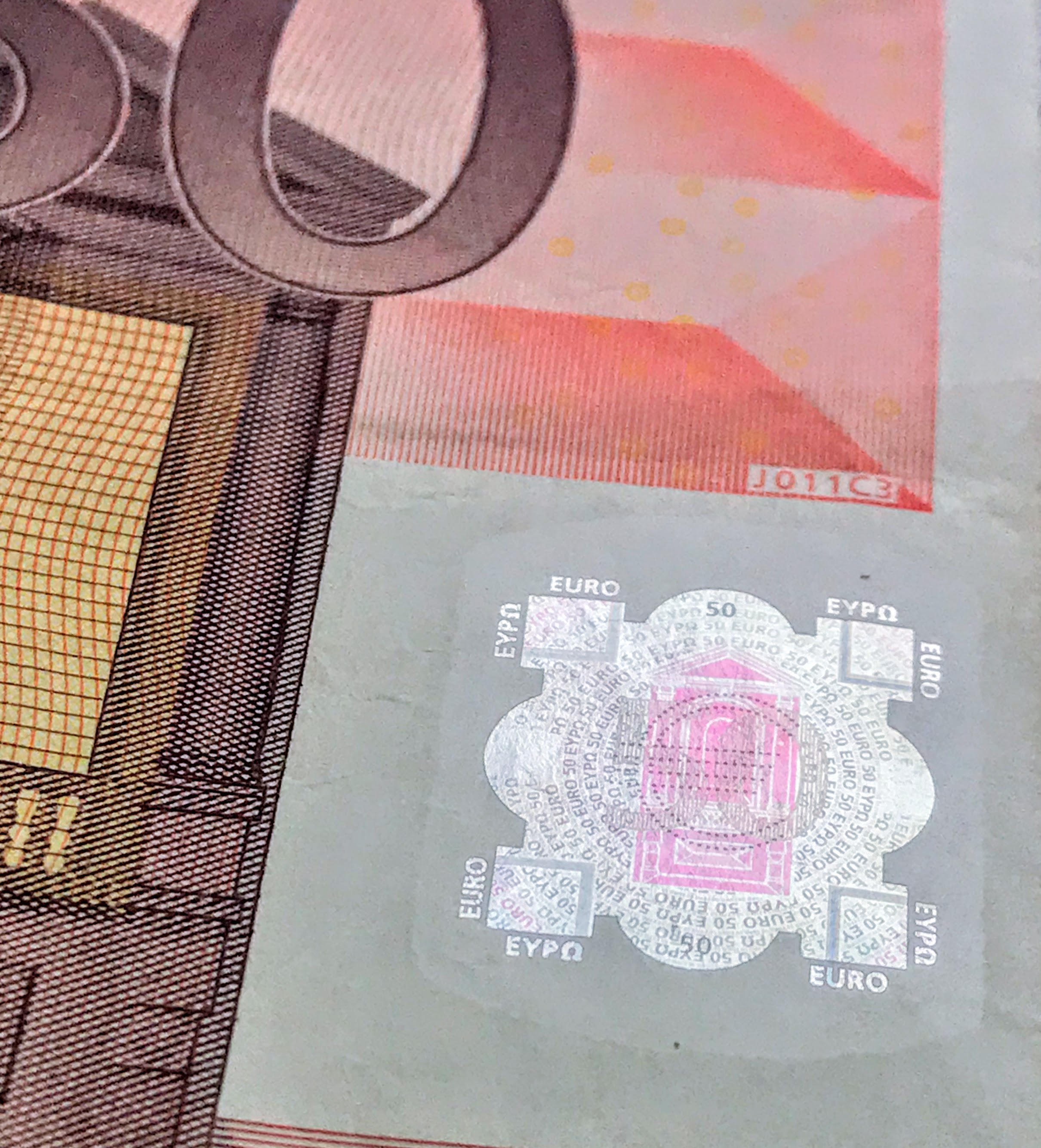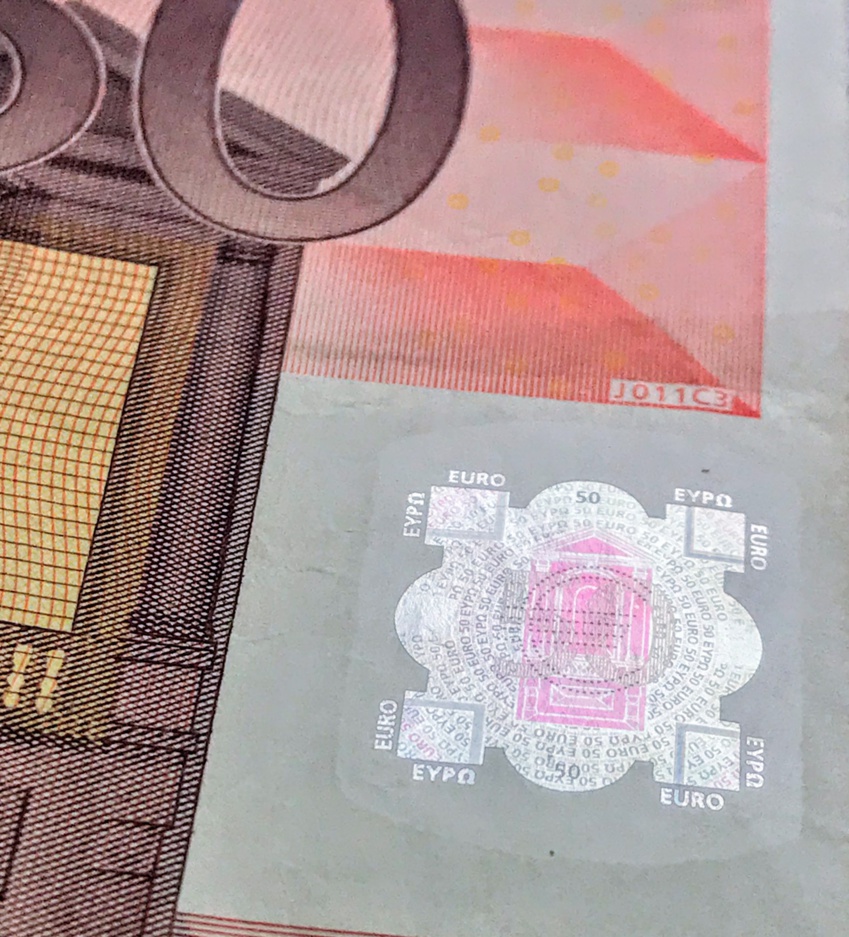The world is dealing with extreme climate events and changing political order. While at the same time we must juggle a pandemic and adapt to the resulting remote shift in the workplace. Taken together, these conditions represent an unenviable challenge for all of us, as well as major contributors to the risk picture.
But no matter the conditions, maintaining control over the flow of products and services is an essential part of doing business. Understanding the trends in risk, executives at security printer Oberthur Fiduciaire decided to benefit from greater control over their own processes.
"The public health and economic crises have demonstrated just how resilient Oberthur Fiduciaire is, which has enabled us to be 100% invested in our work,” says the group’s managing director, Etienne Couëlle.
This resilience had nothing to do with luck, the Frenchman makes clear, and everything to do with a highly optimised supply chain.
A unique position
"In recent years, Oberthur Fiduciaire made the decision to stop relying on suppliers or subcontractors whose own potential difficulties we could not prevent. We recognised that their problems could have a negative impact on our production,” Couëlle explains.
The clearest way to maximise supply chain visibility and robustness is to take control of the process yourself. In 2017, Oberthur Fiduciaire acquired the Dutch paper company VHP, securing the supply of a strategic material.
This is a prime example of when vertical integration can be its most effective. Structuring the supply chain like this allows for extreme efficiency. And it reduces exposure to external factors such as supplier closures or disruption — issues that have been prevalent during the Covid-19 crisis.
Many companies have come to understand this pain during the ongoing semiconductor shortage. Such episodes demonstrate how problems with suppliers can have massive consequences on businesses downstream, potentially affecting entire industries. Avoiding these risks is incredibly valuable.
Vertical integration comes with some well-documented advantages. As well as increasing the reliability of supplies, it also stabilises costs. With complete control of the planning of production, and by unifying previously discrete parts of the supply chain, we can even reduce waste and shipping costs. In the fight against man-made global warming, this can offer peace of mind regarding a company’s environmental footprint.
Most useful of all, in a highly technical industry, such as banknote printing, vertical integration creates better product alignment. Materials can be developed with the in-house manufacturer in mind. Where other suppliers might need to meet the needs of many manufacturers at once, an integrated supplier can specialise itself on the qualities its group requires.
This is doubly advantageous when innovation, competitive security features, and secrecy are part of the industry standard.
“VHP Security Paper has been producing and supplying state-of-the-art banknote paper throughout the world for more than 200 years. It was the right choice and the perfect match for both Oberthur and VHP,” explains Thomas Savare, chairman of Oberthur Fiduciaire. The alliance creates a unique position in the industry.
Part of a broader strategy
The world has changed dramatically in the past few decades.
Central banks now want assurances about where, when, and by whom currency is being produced. They no longer have confidence in sprawling and fragile supply chains.
By concentrating the group footprint in Europe, at sites in France, The Netherlands, and Bulgaria — Oberthur Fiduciaire guarantees clients a rare amount of transparency and traceability. Customers know what is happening, and crucially where it is happening, at each stage of production. The same sites handling Euro banknotes in Sofia or Rennes, with the many exacting standards this requires, serve the needs of central banks globally.
This European profile gives implicit promises about production quality, employee conditions, security, and data protection under EU law. Qualities that can be invaluable in an industry founded on trust.
At Oberthur Fiduciaire, this is also underpinned by self-imposed external standards.
The group has achieved ISO accreditation for product quality, on-site security, environmental and safety standards, business ethics, and information security. And it continually takes steps to further separate itself from the competition.
In this way, the close control Oberthur Fiduciaire has established over its supply chain becomes part of a larger strategy, aiming to achieve the most important business requirement — meeting the needs of its clients. The vertical integration of material production reinforces, both directly and indirectly, the pledges the company makes to transparency, traceability, security, and quality.
But no matter the conditions, maintaining control over the flow of products and services is an essential part of doing business. Understanding the trends in risk, executives at security printer Oberthur Fiduciaire decided to benefit from greater control over their own processes.
"The public health and economic crises have demonstrated just how resilient Oberthur Fiduciaire is, which has enabled us to be 100% invested in our work,” says the group’s managing director, Etienne Couëlle.
This resilience had nothing to do with luck, the Frenchman makes clear, and everything to do with a highly optimised supply chain.
A unique position
"In recent years, Oberthur Fiduciaire made the decision to stop relying on suppliers or subcontractors whose own potential difficulties we could not prevent. We recognised that their problems could have a negative impact on our production,” Couëlle explains.
The clearest way to maximise supply chain visibility and robustness is to take control of the process yourself. In 2017, Oberthur Fiduciaire acquired the Dutch paper company VHP, securing the supply of a strategic material.
This is a prime example of when vertical integration can be its most effective. Structuring the supply chain like this allows for extreme efficiency. And it reduces exposure to external factors such as supplier closures or disruption — issues that have been prevalent during the Covid-19 crisis.
Many companies have come to understand this pain during the ongoing semiconductor shortage. Such episodes demonstrate how problems with suppliers can have massive consequences on businesses downstream, potentially affecting entire industries. Avoiding these risks is incredibly valuable.
Vertical integration comes with some well-documented advantages. As well as increasing the reliability of supplies, it also stabilises costs. With complete control of the planning of production, and by unifying previously discrete parts of the supply chain, we can even reduce waste and shipping costs. In the fight against man-made global warming, this can offer peace of mind regarding a company’s environmental footprint.
Most useful of all, in a highly technical industry, such as banknote printing, vertical integration creates better product alignment. Materials can be developed with the in-house manufacturer in mind. Where other suppliers might need to meet the needs of many manufacturers at once, an integrated supplier can specialise itself on the qualities its group requires.
This is doubly advantageous when innovation, competitive security features, and secrecy are part of the industry standard.
“VHP Security Paper has been producing and supplying state-of-the-art banknote paper throughout the world for more than 200 years. It was the right choice and the perfect match for both Oberthur and VHP,” explains Thomas Savare, chairman of Oberthur Fiduciaire. The alliance creates a unique position in the industry.
Part of a broader strategy
The world has changed dramatically in the past few decades.
Central banks now want assurances about where, when, and by whom currency is being produced. They no longer have confidence in sprawling and fragile supply chains.
By concentrating the group footprint in Europe, at sites in France, The Netherlands, and Bulgaria — Oberthur Fiduciaire guarantees clients a rare amount of transparency and traceability. Customers know what is happening, and crucially where it is happening, at each stage of production. The same sites handling Euro banknotes in Sofia or Rennes, with the many exacting standards this requires, serve the needs of central banks globally.
This European profile gives implicit promises about production quality, employee conditions, security, and data protection under EU law. Qualities that can be invaluable in an industry founded on trust.
At Oberthur Fiduciaire, this is also underpinned by self-imposed external standards.
The group has achieved ISO accreditation for product quality, on-site security, environmental and safety standards, business ethics, and information security. And it continually takes steps to further separate itself from the competition.
In this way, the close control Oberthur Fiduciaire has established over its supply chain becomes part of a larger strategy, aiming to achieve the most important business requirement — meeting the needs of its clients. The vertical integration of material production reinforces, both directly and indirectly, the pledges the company makes to transparency, traceability, security, and quality.


 Oberthur Fiduciaire: supply chain mastery in security printing
Oberthur Fiduciaire: supply chain mastery in security printing





 Companies
Companies